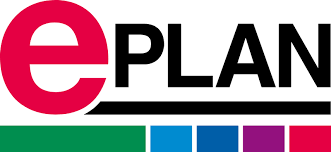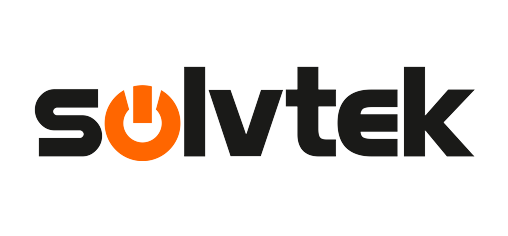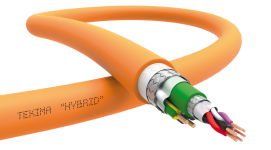Code of ethics and business conduct of www.tekima.it
1. Introduction
1.1. Scope
This document defines the general rules and code of conduct that are applied throughout the organization with the aim of managing and developing working relationships and trust between employees, contractors, customers, suppliers, business partners, organizations, supervisory bodies, etc. in a consistent manner. This document also defines the commitments and ethical responsibilities undertaken by employees and contractors in conducting the company’s business.
1.2. The Company’s mission
Right from the very beginning Tekima has focused its energies on selecting and training its human resources; men and women who are driven by a strong spirit of innovation and a desire for constant improvement. Today, technical and professional training is one of those elements where the company spends the majority of its resources; a well-though-out investment that aims to maintain a team of strongly motivated individuals.
First and foremost, Tekima is a closely-knit team of individuals who have decided to share a huge challenge: to build a company that can compete in the industry by bringing to the fore dynamism, skill but most of all, desire to succeed.
This means that these individuals must be familiar with their own characteristics; they must put in place rules to be followed and give their ideas the energy needed to become actions. It means they must believe wholeheartedly in their work, the daily pursuit of quality, of efficiency and of the effectiveness of their actions. They must have a conscientious approach to assessing their results, believe in the pursuit of continuous improvement, in the fulfillment of agreements and commitments and transparency in relations but, first and foremost, they must always bear in mind that it is the customer and their expectations that motivate daily actions as it is them and the success of their product the lead to our success.
1.3. Target
The rules of this Code are applied without distinction – to the extent of their competence – to members of the corporate bodies, to employees and to all those that operate in the name of, and on behalf of Tekima S.r.l. or who are linked to it through their business relations (agents, consultants, etc.).
Compliance with the rules contained in this document, as well as the guidelines on the company portal, is an essential part of the contractual obligations of all staff and contractors. Staff are required to inform third parties about the obligations set out in this Code, and expect, within the boundaries of their duties, full and unconditional compliance.
2. General principles
2.1. Human resources
Tekima S.r.l. considers its employees and contractors to be one of the main factors in the success and development of the Company. Management of working relations aims to guarantee equal opportunities and encourage the professional and personal growth of all employees.
The Company protects and maintains the physical and moral integrity of its personnel and, to this effect, has adopted the appropriate measures of control and prevention to create and maintain conditions of safety in the workplace. The Company forbids and punishes any conduct adopted by anyone within the organization, who, in any way, threatens an employee or prompts them to behave in a manner that conflicts with their duties, their beliefs or preferences or with the requirements of this Code.
2.2. Fairness, impartiality and integrity
While carrying out their duties CEOs, management, employees and contractors should base their conduct on principles of fairness and impartiality.
When carrying out their duties CEOs, management, employees and contractors must act honestly and comply diligently with the requirements of the law, as well as those contained in this Code. Under no circumstances, and for no reason whatsoever, must they behave dishonestly, including when pursuing the company’s objectives.
In compliance with the constitutional principle of equality for all individuals, the Company avoids any type of discrimination based on the age, gender, sexual preference, health, race, nationality, political opinions or religious beliefs of its stakeholders.
The Company guarantees compliance with the principles of fair competition and, during all its activities, avoids any behavior that may imply the abuse of a position of power and/or privilege.
2.3. Quality and performance
The Company’s activities aim to achieve standards of excellence in the quality of the service provided and products supplied. Therefore, the Company also defines its objectives in terms of the quality it provides and assesses them periodically. While carrying out their duties, CEOs, management, employees and contractors are required to apply principles of economy and efficiency, while always fulfilling their commitments in terms of the quality provided and the level of service.
2.4. Obligations of the staff
All members of staff must act with fairness, honesty and integrity when carrying out their duties, and while complying with the obligations in the contract they have signed as well as with current legislation and with the rules that the Company has drawn up in specific operating instructions. Employees are required to avoid situations involving real or potential conflicts of interest, from which they could gain an unfair advantage, and must avoid acting to the detriment of the legitimate interests of others. The Company strictly forbids any employee or contractor to behave in an improper or disorderly manner, either onsite or offsite, to avoid creating a hostile and intimidating working environment.
2.5. Drugs and Alcohol
Drugs and alcohol can have a negative influence on working capacity; they can put the employee and those who work with them at risk. The Company prohibits the possession, use, purchase, sale, attempted sale, distribution or production of illegal substances in the workplace, including controlled drugs without prescription. The misuse or illegal use of alcohol and illegal substances and prescribed drugs, during performance of duties both onsite and offsite, is strictly forbidden.
During any event sponsored by the company or by a client, the employee is required to use their judgment when alcohol is being served. Alcohol should not be consumed when the employee is required to drive.
Any breach of these regulations will be punished with disciplinary measures which in extreme cases may even include dismissal. Since the use of such substances is illegal, breaches of the Code may also result in arrest and prosecution by the police. Where permitted by law, Tekima reserves the right to take the appropriate measures to investigate compliance with these regulations, including, but not limited to, testing for drugs and/or alcohol, performed by qualified medical professionals, and searches in the workplace.
3. Accuracy in recording and handling information
3.1. Transparency and integrity of information
CEOs, management, employees and contractors are responsible for providing accurate, complete and transparent information to ensure that everyone (including customers, suppliers, etc.) is able to make correct and knowledgeable decisions. When defining general terms of supply, or drawing up contracts, the Company undertakes to operate in good faith, with the aim of clearly specifying the mutual obligations resulting from the agreement with the other party, so that the agreement may be fulfilled correctly.
3.2. Confidentiality and protection of company information and personal data
CEOs, management, employees and contractors must not inappropriately use or disclose any significant and confidential inside information or data concerning the Company that they may become aware of as they perform their duties.
All those who operate in the name of, and on behalf of Tekima are prohibited from using confidential and inside information from which they could gain an unfair advantage. The Company has introduced and implemented every organizational and managerial measure to comply with laws on data protection and has adopted specific control systems to guarantee the confidentiality of the personal data processed and stored during its business activities.
CEOs, management, employees and contractors must absolutely refrain from improperly using personal data or disclosing them to third parties. The improper use or disclosure of confidential third party information by an employee can be harmful to the Company and provide the basis for legal proceedings against the company and/or the employee responsible for the indiscretion.
CEOs, management, employees and contractors must absolutely refrain from communicating information about the company, its customers, suppliers or partners, via any means, to unauthorized individuals, and for any reason that is not strictly related to their work.
4. Use of company assets, communication and its systems
4.1. Managing company assets
All members of personnel are responsible for the correct use of the assets and equipment assigned to them strictly for business purposes, and must avoid misuse and/or improper use. Employees must not allow the company assets allocated to them to be used by any third party. Company assets include, but are not limited to, the following:
– IT systems, equipment and technologies (including personal computers, tablets and mobile devices);
– Cars and means of transport;
– Equipment and machinery for processing and maintenance;
– Telephones, photocopiers, scanners and fax machines;
– Books, manuals, standards;
– Business Plans;
– Assets of intellectual property such as software codes, licenses, ideas, concepts, content and inventions;
– Lists and information about clients, suppliers and distributors, including information about finding customers or about trading;
– Office supplies;
– The name “Tekima S.r.l.”, various trademarks and logos.
Assets also include all offers, internal memos, notes, price lists, data and any other documentation (either hardcopy or digital) produced in relation to the company’s activities.
The company allows and authorizes the personal use of company communication systems or the use of personal communication systems solely in the event of absolute necessity and urgency and when this does not result in a breach of the Code.
4.2. Returning company assets
When employment is terminated, or when requested by Tekima S.r.l., the employee must return all company assets in their possession.
4.3. Personal computers, tablets and mobile devices
The personal computer used by employees is a working tool. Each employee is responsible for the use of the IT equipment assigned to them. Any use not related to work can contribute to causing disruption, incur maintenance costs and, above all, pose a threat to security.
The user must not modify the hardware and software characteristics of their personal computer. Personal computers must not be left unattended, therefore, in the event of absence from the workplace for any length of time (e.g.: 15 minutes) access must be blocked to any unauthorized individuals; laptops must never be left unattended. Information stored on personal computers must be work-related only and, in any case, permitted by current legislation. It is good practice to periodically re-organize stored data by deleting any unnecessary or obsolete files (at least every six months). Special attention should be paid to data duplication. In fact, redundant storage of data should be avoided. The reproduction or duplication of computer programs is not allowed under current legislation. What is more, personnel must not use software that is not authorized by the Company on devices and tools assigned to them for business purposes. Personnel must not disclose or communicate their personal access codes or passwords for devices and equipment assigned to them for business purposes.
4.4. E-mail
The mailbox, allocated to the user by the company, is a working tool. Those assigned mailboxes are responsible for using them correctly. In the event of unknown senders or unusual messages, these messages should be deleted without being opened to avoid the risk of being infected by virus. In the event of messages from unknown senders that contain suspicious attachments (files with extensions such as .exe, .scr, .pif, .bat, .cmd), these must not be opened and the intervention of an IT manager should be requested to verify the mail.
The uncontrolled spread of “Chain letters” (messages that are copied and passed on to as many recipients as possible) should be prevented to avoid limiting the efficiency of the mail system. When sending heavy attachments, compressed formats should be used (*.zip, *rar, *.jpg). When wishing to send a document outside the company a write-protected format is preferred (for example, *.pdf). Subscription to external “mailing lists” is allowed for business purposes only. The authenticity of the site should be checked before subscribing. Mailboxes should be kept well-organized by deleting useless documents and, above all, large attachments.
4.5. Internet
Personal computers that are authorized to use Internet are company tools that are to be used for company business only. Using the internet for purposes other than those closely linked to business activities is strictly forbidden. Users must not download free software (freeware) or shareware from the Internet, unless expressly authorized to do so by the IT manager. Users must not participate in non-professional forums, use social network or chat lines (except for authorized tools) even if pseudonyms (or nicknames) are used. All internet access is chronologically recorded and traced in special files (LOG), as generally foreseen by standard regulations and minimum security requirements. LOG files are subject to stringent security measures, including personal data protection.
4.6. Virus Protection
All users must seek to reduce the risk of attacks on the company’s IT system by viruses or any other aggressive software (for example, by not opening suspicious e-mails or attachments, by not browsing sites that are not work-related, etc.). All users must check that they have the company’s antivirus software and that it works properly. When the antivirus software detects a virus that it has not managed to eliminate, the user must suspend any ongoing processes and notify the IT manager immediately. All magnetic devices (CD-ROMs, flash-drives, etc.) that come from outside the company must be checked using the antivirus program before use and, if a virus is detected that cannot be eliminated by the software, then they must not be used.
5. Conflicts of interest and business opportunities
5.1. Free gifts and presents
Employees are not allowed to accept and/or request, for themselves or others, or offer free gifts, donations, presents or other benefits to/from third parties (suppliers, customers, public officials) with the aim of obtaining or granting an unfair advantage. The opportunity to give or receive free gifts or presents of a modest value is permitted in compliance with current regulations, and for business purposes, as long as it is not intended to influence or alter the opinion of Company employees and/or third parties on any decision-making process and/or any of the Company’s activities (choosing suppliers, hiring procedures, etc.).
5.2. Managing business relations and quality of information
The Company generally offers its services/products without any kind of discrimination, bias or prejudice to anyone who may require them, however, it reserves the right to verify and assess the reputation and reliability of the other party.
In handling business relations with customers, members of staff base their conduct on principles of fairness, honesty and good faith and undertake not to exploit any situations of weakness or ignorance regarding the other party. The Company undertakes to provide clear, simple and exhaustive information on content, delivery methods and on prices applied, to ensure that customers can make well-informed and knowledgeable decisions. The Company guarantees that its contracts and general terms of supply comply with current legislation and the standards applied in the various markets it works in, and undertakes to adopt contractual conditions that are clear, complete and can be easily and quickly understood.
In handling information acquired from its customers, it guarantees that handling and treatment of these data are carried out in full compliance with laws on data protection and any other relevant legislation regarding electronic communications.
5.3. Managing relations with suppliers
In its business relations with all potential suppliers, the Company undertakes to guarantee that all suppliers will be treated with fairness and equality in terms of access and impartiality during the relevant transactions. Assessment and selection of suppliers is carried out using a system of rules that aim to guarantee transparency, affordability and traceability in the decision-making process and to ensure that the service acquired is reliable, timely and of excellent quality.
Personnel are not allowed, in any way or for any reason, to select a supplier with the aim of obtaining illegal financial gain, either for themselves or for the Company.
6. Disciplinary measures for breaching the code
Breaching or failing to comply with rules contained in this Code is punishable by disciplinary action, as well as any civil and criminal action that is admissible.
In more serious cases, the breach may result in the termination of the employment contract.
In the event of conflict between the contents of this document and any law, standard or supplementary regulation that may apply, the most restrictive regulation will apply.
All employees are responsible for reporting any type of breach of the Code to one of the CEOs and/or the Board of Directors.







